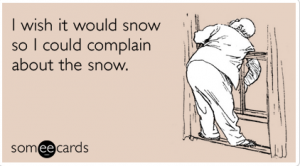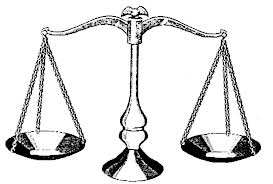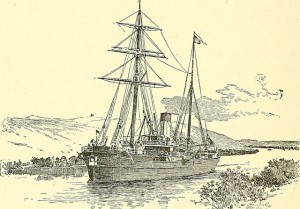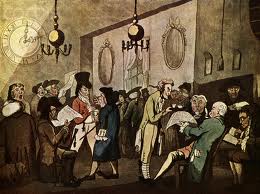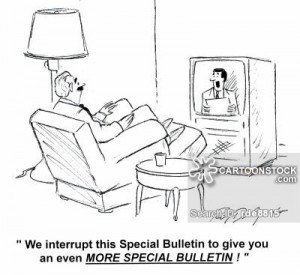“What’s great about this country is America started the tradition where the richest consumers buy essentially the same things as the poorest. You can be watching TV and see Coca-Cola, and you can know that the President drinks Coke, Liz Taylor drinks Coke, and just think, you can drink Coke, too. A Coke is a Coke and no amount of money can get you a better Coke than the one the bum on the corner is drinking. All the Cokes are the same and all the Cokes are good.”
― Andy Warhol

Love it or not, hate it or not, support it or not, the inescapable truth is that we, as Americans, live in a consumer-based society. The theory here is that if our country consumes goods and services in large quantities, we will be better off economically, socially, and financially. In essence, our nation rides on the idea that it is good for people to spend a lot of money, and that this consumption – capitalists argue – is what gets our nation’s economic engine chugging along happily.
No matter what you think, we live to shop. Easy said as done.
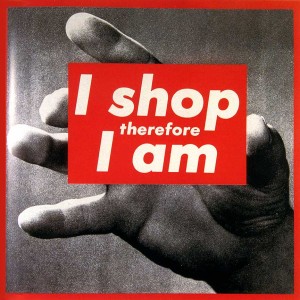
So, several questions arise. What kind of leadership do we need to promote this ideal as effectively as possible, what policies do we need to implement in order to keep it moving, and what, if anything, should be done in this day and age to get our economy out of the dumps?
The answer is: we need to start spending again.
However, since the disastrous administration of former President George W. Bush, the public at large seems to be tired of republicans and everything they stand for. The simple fact of the matter is that more and more people in our country are turning to big government to solve our problems, and have been doing so since W’s run ended. Most appear to be fed up with the role of state – or the lack thereof – and want leaders like President Barack Obama to step in and magically fix the situation with his infinitely deep pockets and his abundance of blank checks. Obama has been riding on these tickets and sentiments like a surfer rides a wave for several years now, ever since he first took office, and it looks as though he shows no sign of stopping. In one speech he delivered, he even went as far to say that he wants to “make big government cool again.”
I just have to put this out there – when was big government ever cool?
Moving on, the unavoidable truth of the matter is that Obama’s big government initiatives might not be the answer we need in this day and age. It is easy to admit that at certain times – during a serious depression, during an international crisis, or during a weakening middle class, for example – big government serves a purpose and seems to do good for society. However, in a society where a recession is slowly recovering, the housing market is growing again, and the middle class is expanding, it is the opinion of this reporter that increasing the size and scope of the government may be a bad choice. And I’m being nice.
We may be in the midst of a total conundrum, but the solution itself seems quite apparent to me. We need a republican to take the presidential office to get our economy chugging again. Let me explain.
Republicans need to rebound after the catastrophe that was W and get back the support they had during the Reagan era. They need to earn back the public’s trust and remind people that they are the party of the people. Why is this important? Beucase republicans adhere to the philosophy that the smaller a government is, and the less impact it has on people’s lives, the better off we all are. Republicans believe that minimal government inference is the cutting stone of a flourishing society, and that when people are allowed to keep the money they make, they are more productive, happy, and cultured. Taxes and government spending seem to create a distrust of the state and make people feel as though they are not allowed to achieve the “good life,” make their mark on society, or chase the American Dream. In my opinion, the public has forgotten about this due to W. BUT, we can remind them once more that big government leaves a bad taste in their mouth.
The main reason I say a republican could change things for the better is that when taxes are hiked, people have less money in their pockets, and when people have less money in their pockets, they are inclined to spend less on consumer goods. And what happens when the people of a society based on consumerism suddenly stop consuming? The gears to the system come to a grinding halt. Shops go out of business. Jobs are cut. And in a society where businesses need to compete to create “the next big thing,” progress is hindered.
The reason I say we need a republican candidate in office is because republicans tend to oppose most taxes, especially unnecessary ones. In a consumer-based economy, this is a good thing, because it means that people are allowed to keep more of their own money. And, resultantly, when people have more of their own money, they tend to be more eager to spend it on goods and services – the backbone of capitalism. Think what you want, but when citizens of our nation buy things at the mall, it helps. In the U.S., spending money is a good thing. We should never be afraid to spend, because spending boosts the economy. However, if democrats keep digging in the pockets of Joe Blow consumer, he has less to spend on products that stimulate the market and make the financial world go round. We may be in a recession, but taxing the average consumer as a way of redistributing wealth weakens our society, especially if it makes it harder for him to put faith into the spending. I understand that a democrat (ahem, socialist) like Obama will employ taxes, take the money, and put it into programs to help the needy, but that approach ultimately undermines what our country stands for. A candidate like Romney would cut back taxes, stay out of the publics’ lives, and give the average consumer more confidence in buying things again. If this were to happen on a massive scale in our nation, our economy would rebound from its’ recession in a matter of months, merely due to the fact that we are putting our faith back in consumerism again.

Okay, to wrap up, I urge all of you to do the following: SPEND. BUY. PURCHASE. Even if it’s crap. Even if you’re not really sure you need it. Even if your wife might object. In a nation where the functionality of our economic system depends on what is mass consumed, we need it. And oh yea, and vote republican. Because you might have a little more dough in your pockets if you do.


